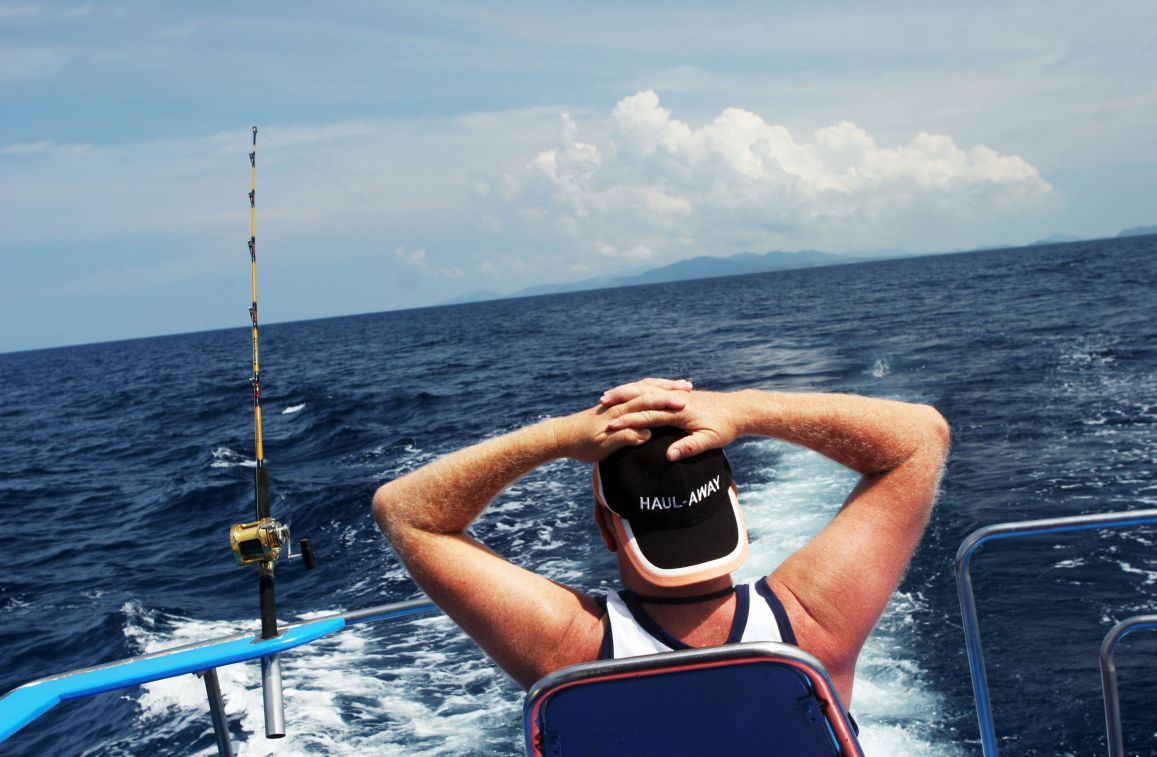While there is of course so much more to deep sea fishing in Turks and Caicos Islands than simply bringing home an epic catch, there’s nothing quite as depressing as heading out and catching absolutely nothing at all. And while this is the kind of reality that comes about very often, there will always be those unfortunate individuals for whom all the best intentions in the world come to nothing.
But here’s the thing – in the vast majority of such instances, the reason for coming home empty-handed has nothing to do with the conditions, the behaviour of the fish or anything else out of the angler’s control. Instead, it’s simply a case of those in question having fallen foul of one or more common mistakes the likes of which are guaranteed to hamper your haul.
So in the spirit of learning from the mistakes of others, rather than having to go about a trial and error process personally, here’s a quick look at just a few examples of the kinds of mistakes that are easy to make, though essential to avoid:
1 – Worn Line
First up, the single most common mistake of all and one that can be difficult to avoid when you yourself have not been in charge of the tackle taken along is using worn line. The reason being that even if you were equipped with not only the most extraordinary equipment in the world but also several decades of elite fishing experience, old and worn line will lay your efforts to waste – every time. Line needs to be new, suitable for purpose and of the highest possible quality – accept nothing less.
2 – Inappropriate Hooks
Along with ensuring that the fishing hooks you bring along are of the best possible quality, it’s also important to acknowledge the fact that there’s no such thing as a one size fits all hook. Quite to the contrary in fact, there are thousands of different shapes, and sizes and types of hooks out there which are all made for very different purposes. So in accordance with what it is you intend to catch and where, be extremely strategic and selective when it comes to hooks.
3 – The Wrong Rods and Reels
And while we’re at it, it is probably worth adding the rest of the important gear into the equation as well as to use the wrong reels, rods or really anything else for the type of fishing you are taking part in will always put a crimp on your success rates. This is precisely why those who partake in a variety of fishing types at the highest level tend to own more rods and reels than most of us own…well, anything else at all really!
4 – Handling Fish Without Gloves
There are two very important reasons why it is important to handle fish wearing the appropriate gloves – both of which come down to health and safety. First up, so many species of fish are protected with all manner of razor sharp spikes and protrusions the likes of which can pack a serious punch when a fish is fighting for its life. Secondly, if you are out to return the fish to the water and would prefer not to harm them, it is important to handle them in a way that will not destroy or damage the protective coating covering their scales. So unless you have no regard for the health and wellbeing of both yourself and the fish you catch, it’s important to wear gloves.
5 – Not Listening
A quick point but an important point nonetheless, if as an amateur you’re heading out with a professional guide or tutor of any kind, it would be crazy not to lap up every piece of advice and guidance they can offer. Try to bear in mind that the services of professional fishing tutors and guides not come cheap, so if there happens to be one included as standard in your charter trip, use it!
6 – Ignoring Weather Warnings
To ignore weather warnings when heading out on any fishing trip whatsoever is quite simply a ludicrous idea. Even if poor weather doesn’t necessarily put you and your group in danger, chances are it will do a number on your chances of catching anything whatsoever.
7 – Switching Lures Often and Randomly
Last but not least, just because you have hundreds of brightly coloured and enormously attractive lures in your tackle box does not in any way mean that you actually have to use every single one of them. The simple fact of the matter is that the more frequently you pull your lures out of the water and the longer you spend changing them, the more potential bites you may be passing up. After all, you’ll never know if the catch of your dreams was literally centimetres away from the lure when you decided to pull it out of the water for no good reason whatsoever!


